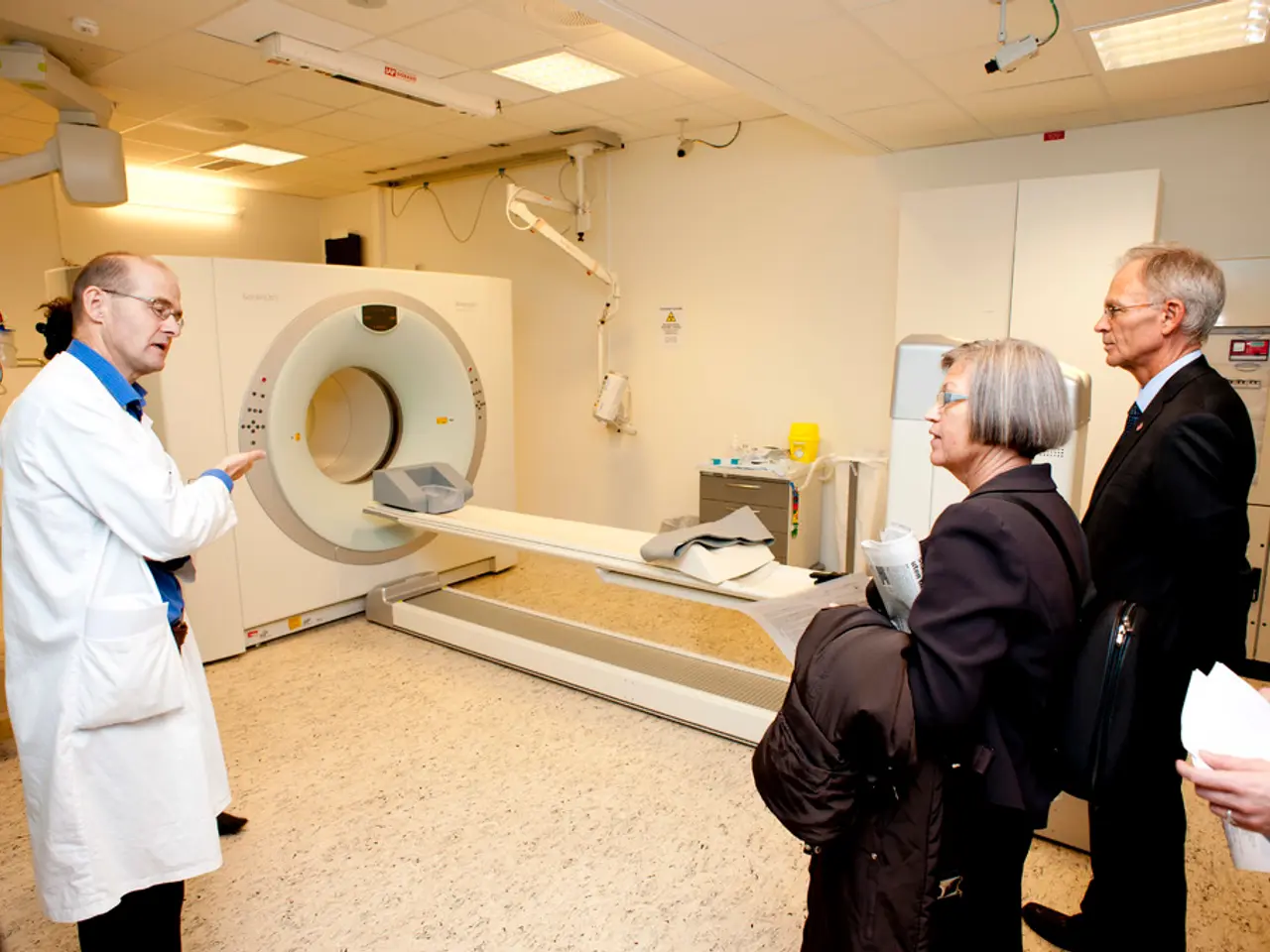Insights into the Cholesterol Arterial Examination
The Coronary Artery Calcium (CAC) test is a noninvasive and quick method used to estimate the risk of coronary artery disease (CAD) and future heart events. This test, which involves a CT scan, quantifies the amount of calcified plaque in the walls of the coronary arteries.
Preparation
To undergo a CAC test, arrive on time and be prepared for ECG leads to be attached to monitor your heartbeat during the scan.
Procedure
During the procedure, you will lie still on a CT scanner bed while holding your breath as instructed. The scan itself takes only a few minutes.
Scoring
After the scan, a calcium score is calculated, often based on the Agatston scoring method. This score combines the density and area of calcified plaques.
Interpretation
The interpretation of the calcium score follows a scale:
- A score of 0 indicates no detectable calcium, suggesting very low risk of CAD.
- A score between 1 and 99 indicates mild calcification, suggesting mild risk of coronary artery disease.
- A score between 100 and 399 indicates moderate calcification, indicating a moderate risk for future cardiovascular events.
- A score of 400 or more indicates severe calcification, associated with high risk and possibly significant coronary artery narrowing.
Benefits and Uses
This test is a quick, low-risk way to identify subclinical atherosclerosis and guide preventive measures, particularly in patients without symptoms but with cardiovascular risk factors. A healthcare professional may request a CAC test after testing cholesterol levels to gain a deeper understanding of a person's heart disease risk.
The cost of a CAC test can range from $100 to $400, and not every insurance provider pays for the test. However, it could be particularly helpful for individuals who do not wish to start statin therapy, have stopped statin therapy due to side effects, are between 40 and 55 years old with a high risk of heart disease, or are older with few risk factors for heart disease but are unsure if they would benefit from using statins.
In summary, the CAC test provides a detailed, 3D picture of the buildup of calcified plaque in the coronary arteries using a multidetector CT (MDCT) machine and involves attaching electrodes to the chest for an electrocardiogram (ECG). A high CAC score suggests a higher risk of mortality than high cholesterol. A score of 1-10 indicates minimal plaque and a low risk of severe cardiac events, while a score of 101-400 indicates a moderate risk of severe cardiac problems in the future. An individual with a CAC score of over 400 has a significant risk of a future cardiac event. A score of 0 indicates no plaque and a very low risk of severe cardiac events.
It's important to note that while the CAC test is highly useful for calcified plaques, it does not detect soft (non-calcified) plaques. Therefore, it is part of an overall cardiac risk evaluation. A high cholesterol level can contribute to the buildup of plaque in major blood vessels, and a CAC test can more accurately show cardiovascular disease risk compared to other cholesterol tests. According to the AHA, individuals with a score above 100 are recommended to take statins. High cholesterol levels can contribute to the buildup of plaque in major blood vessels, and a CAC test can more accurately show cardiovascular disease risk compared to other cholesterol tests. The CAC scan checks for the buildup of calcified plaque in the coronary arteries.
- Seekers of a CAC test should be aware that ECG leads will be attached for heartbeat monitoring during the scan procedure.
- The cardiovascular-health implications of a CAC test are significant, as it quantifies the risk of heart disease by scoring the amount of calcified plaque in coronary arteries.
- Other heart diseases, such as other heart conditions and medical-wellness issues related to health, can be better understood with a CAC test due to its evaluation of a person's heart disease risk.
- Science and technology play a crucial role in this test, as multidetector CT machines and electrocardiograms are used to generate detailed images of the coronary arteries, helping to guide preventive measures for seekers of heart health.




